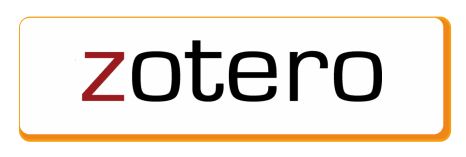Pemberdayaan Penyandang Disabilitas Berbasis Kerajinan Tangan
 Abstract views: 948
,
Abstract views: 948
,
 PDF downloads: 1163
PDF downloads: 1163
Abstract
This study aims to further explore the empowerment of people with disabilities which is carried out personally by Mr. Sulaiman who is also a physically disabled person. The type of research that will be used is qualitative research, interview, observation, and documentation methods are used to obtain valid data. The data in this study were obtained through interviews with Mr. Sulaiman as the owner and pioneer of small and medium businesses located on Jl. Kaliurang No. Km. 13.5, Besi, Sukoharjo, Kec. Ngaglik, Sleman Regency, Yogyakarta Special Region. The researcher also uses secondary data that comes from the documentation data contained in the place of production of the business which is located next to Mr. Sulaiman's house. The data analysis technique uses the triangulation method, which is to explore the truth of certain information through various methods and sources of data acquisition.
The results showed that the empowerment carried out by Mr. Sulaiman for the disabled community was carried out personally. By starting a business and employing people with disabilities who have received services from rehabilitation centers. Mr. Sulaiman's employees are also from outside the region such as Pati, Central Java, East Java etc. It also proves that people with disabilities also have a high morale. However, the lack of employment opportunities for people with disabilities is an obstacle even though they have received services from the local rehabilitation center.
Downloads
References
Aprianto, (2019) “Pengaruh Pengalaman Kerja Dan Pengembangan Karir Terhadap Kinerja Karyawan Pada Pt Sinar Niaga Sejahtera Kota Lubuk Linggau”.
Aesah, Harsono, and Jaswita, (2020)”Pemberdayaan Difabel Melalui Usaha Ekonomi Produktif (Uep) Di Desa Kediri, Kecamatan Kediri, Kecamatan Kediri, Kecamatan Lombok Barat Nusa Tenggara Barat”.
Ambar, Teguh Sulistiyani. (2004). Kemitraan Dan Model-Model Pemberdyaan. Yogyakarta: Gava Media.
Afifuddin Dan Beni Ahmad. (2009). Metodologi Penelitian Kualitatif. Bandung: Pustaka Setia.
Dini Widinarsih, (2019) “Penyandang Disabilitas di Indonesia: Perkembangan Istilah dan Definisi”.
Hardani, Dkk, (2020) Metode Penelitian Kualitatif Dan Kuantitatif, Yogyakarta: CV. Pustaka Ilmu Group
Hamidi (2008). Metode Penelitian Kualitatif. Malang: UMM Press.
Hendra Wijayanto. Empowerment Disabilities in the Implementation of the Program Joint Business Group (Kube) in the Village Suruh Tasikmadu District, District Karanganyar. The Indonesian Journal of Public Administration. Vol. 1 No. 2, Juli 2015
Mahmud. (2011). Metode Penelitian Pendidikan. Bandung: CV Pustaka Setia.
Mulyati, Utami, and Susilo, “Pemberdayaan Siswa Berkebutuhan Khusus Melalui Keterampilan Untuk Melatih Kemandirian Di Slb Psm Takeran – Magetan.” Jurnal Terapan Abdimas, Vol. 6 No. 1 Januari 2021
Patilima, Hamid. (2007) Metode Penelitian Kualitatif. Jakarta: Alfabeta
Puspawati, Praswati, and Wahyuddin, “Analisis Program Pemberdayaan Difabel Menuju Kemandirian Ekonomi.” Seminar Nasional dan The 6th Call for Syariah Paper Universitas Muhammadiyah Surakarta.
Sarinah, Sihabudin, And Suwarlan, (2019) “Pemberdayaan Masyarakat Dalam Bidang Ekonomi Oleh Pemerintah Desa Pangandaran Kecamatan Pangandaran Kabupaten Pangandaran”.
Sumaryadi. (2005) Perencanaan Pembangunan Daerah Otonom dan Pemberdayaan Masyarakat. Jakarta: CV Citra Utama
Triyanto et al., “PEMBERDAYAAN KOMUNTAS DIFABEL MELALUI PRODUKSI VARIASI MAKANAN KECIL.” Jurnal Ilmiah Pengabdian Kepada Masyarakat Pakem, Vol. 1 No. 1 September 2019.
The journal operates an Open Access policy under a Creative Commons Non-Commercial 4.0 International license. Authors who publish with this journal agree to the following terms:
- Authors retain copyright and grant the journal right of first publication with the work simultaneously licensed under a
 Commons Attribution-NonCommercial 4.0 International License
Commons Attribution-NonCommercial 4.0 International Licensethat allows others to share — copy and redistribute the material in any medium or format, and adapt — remix, transform, and build upon the material.
- Authors are able to enter into separate, additional contractual arrangements for the non-exclusive distribution of the journal's published version of the work (e.g., post it to an institutional repository or publish it in a book), with an acknowledgement of its initial publication in this journal.
- Authors are permitted and encouraged to post their work online (e.g., in institutional repositories or on their website) prior to and during the submission process, as it can lead to productive exchanges, as well as earlier and greater citation of published work (see The Effect of Open Access).



















